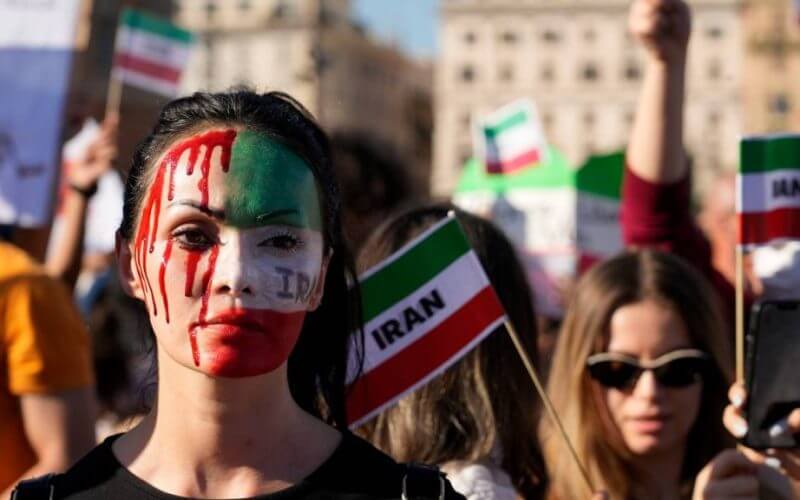- Internet Shutdown and Journalist Suppression
From the start, the regime shut down Internet services throughout Iran to prevent Iranians from organizing on the ground and sharing their stories. The regime has also targeted journalists and news outlets, accusing them of spreading anti-regime information and inciting protests. Independent, local journalists have faced arrest on charges of working for Western governments and Israel to undermine the regime. Many Iranian protesters still manage to use proxies to post their photos and videos to social media platforms.
2. International Attention
Globally, celebrities, journalists, rights activists, athletes, and politicians have raised the issue of Iran protests on social media. On Twitter, U.S. legislators continue to speak out against the government in Iran, calling for the Biden admin to end nuclear talks with Tehran and to enact sanctions. While the White House has pivoted away from urgently pushing a nuclear deal, the admin has stopped short of supporting the people’s revolution.
3. Kurdish Suppression
Security forces have deployed to Kurdish regions to arrest, beat, and kill protesters. According to videos obtained exclusively by The Foreign Desk, convoys of military vehicles with heavily armed troops have entered Iran’s Kurdish cities like Mahabad and Saqez, where 22-year-old Mahsa Amini was born.
4. Terrorist Proxies
Reports from the ground show that many of the security forces Iranians have encountered are not Iranian and speak Arabic, confirming earlier reports that terrorist proxies have been brought in to help the Ayatollahs in their crackdowns. With Iran being close to Iraq, reports also surfaced that they’re relying on Iraqi-based Shiite group Hash al-Shaabi.
5. International Sanctions
In response, the international community has engaged in a campaign to sanction the regime and officials/bodies associated with the government. The U.S. sanctioned Basij forces for brutality against protesters and government officials for ordering executions of hundreds of Kurds. Canada has banned IRGC members from entering. Germany has passed measures against the regime and Islamic Centers for their closeness to regime officials. The EU is examining whether to classify IRGC as a terrorist organization.










